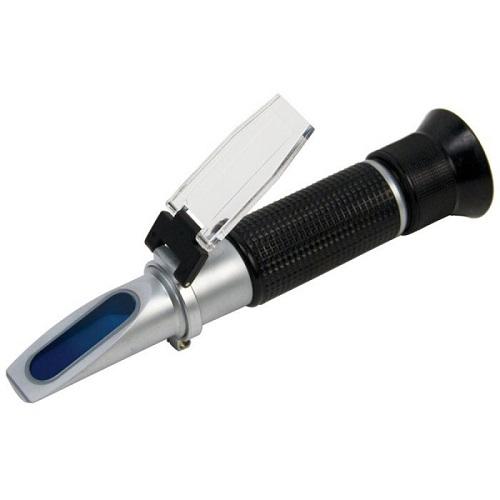Calibration Chemistry Physics
Chemistry Physics Calibration is defined as the act of making sure that a scientific process or instrument will produce results which are accurate.
Chemistry Physics Calibration is defined as the act of making sure that a scientific process or instrument will produce results which are accurate.
A pH meter is a scientific instrument that measures the hydrogen-ion activity in water-based solutions, indicating its acidity or alkalinity expressed as pH. The pH meter measures the difference in electrical potential between a pH electrode and a reference electrode, and so the pH meter is sometimes referred to as a “potentiometric pH meter”. The difference in electrical potential relates to the acidity or pH of the solution.


An electrical conductivity meter (EC meter) measures the electrical conductivity in a solution. It has multiple applications in research and engineering, with common usage in hydroponics, aquaculture, aquaponics, and freshwater systems to monitor the amount of nutrients, salts or impurities in the water.
A viscosity tester is a pharmaceutical instrument that you will use in testing the viscosity of certain pharmaceutical fluids. You can also identify it as viscometer, rheometer or a viscosity meter in different avenues but it is one instrument. It is an instrument that you will use in a pharmaceutical laboratory to measure the internal flow of fluid.


A hydrometer is an instrument used for measuring the relative density of liquids based on the concept of buoyancy. They are typically calibrated and graduated with one or more scales such as specific gravity.
The concentration meter is designed to draw gases around it under the atmospheric pressure. If excessive pressure is applied to the gas inlet (GAS IN) and outlet (GAS OUT) of the concentration meter, measuring gases may leak out from its inside and may cause dangerous conditions.

Please fill out the Contact Form.
We will contact you immediately after receiving your message. Thank you for your trust in our service